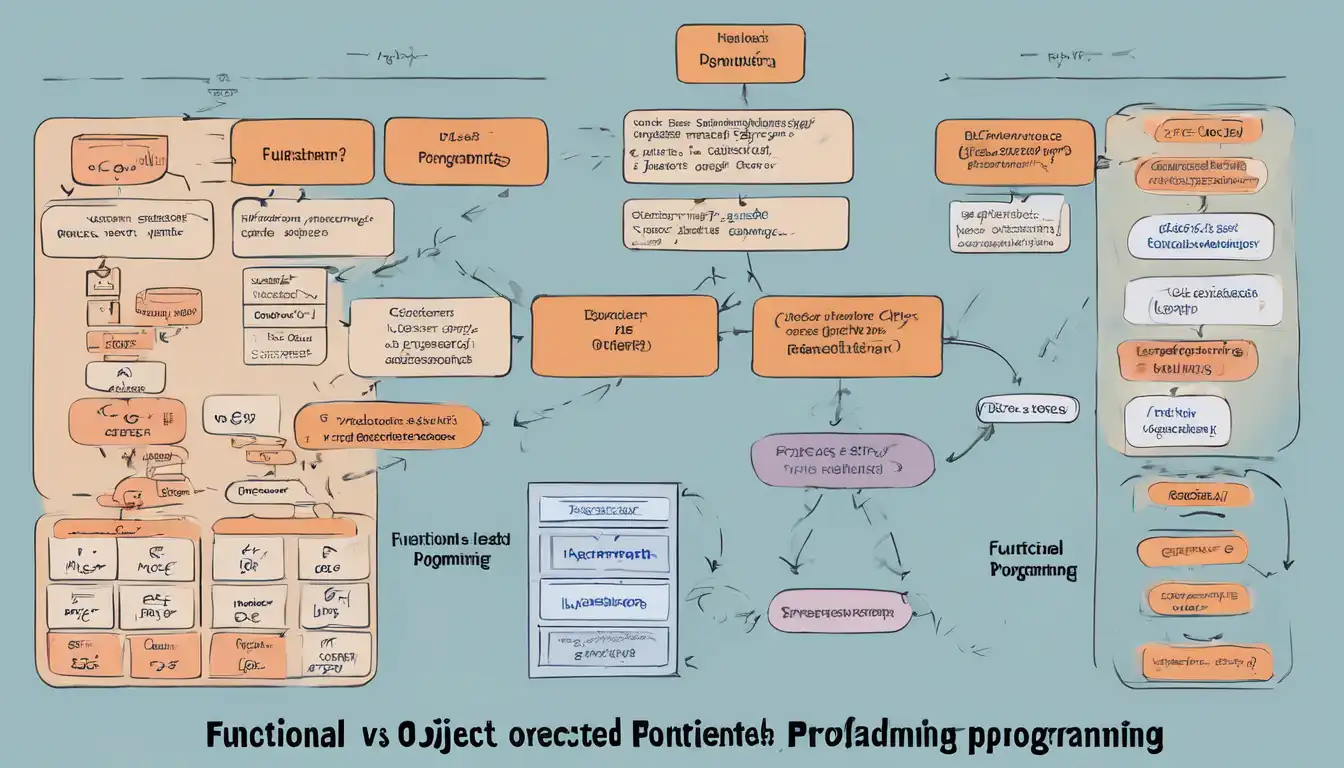Introduction to Programming Paradigms
In the world of software development, understanding the differences between functional programming (FP) and object-oriented programming (OOP) is crucial for choosing the right approach for your project. Both paradigms offer unique advantages and challenges, making them suitable for different types of applications.
What is Functional Programming?
Functional programming is a paradigm that treats computation as the evaluation of mathematical functions and avoids changing-state and mutable data. It emphasizes the application of functions, in contrast to the imperative programming style, which emphasizes changes in state.
- Immutable Data: In FP, data is immutable, meaning it cannot be changed after it's created.
- First-Class Functions: Functions are treated as first-class citizens, allowing them to be passed as arguments to other functions.
- Pure Functions: Functions in FP are pure, meaning they always produce the same output for the same input and have no side effects.
What is Object-Oriented Programming?
Object-oriented programming is a paradigm based on the concept of "objects", which can contain data and code: data in the form of fields, and code, in the form of procedures. OOP focuses on the objects that developers want to manipulate rather than the logic required to manipulate them.
- Encapsulation: OOP bundles the data and the methods that operate on the data into a single unit.
- Inheritance: This allows a class to inherit properties and methods from another class.
- Polymorphism: It enables one interface to be used for a general class of actions.
Comparing Functional and Object-Oriented Programming
When deciding between FP and OOP, consider the nature of your project. FP is often better suited for applications where the state is not a primary concern, such as in mathematical computations or data processing. OOP, on the other hand, is ideal for applications that involve a lot of state manipulation, such as GUI applications or games.
Performance Considerations
Performance can vary significantly between FP and OOP. FP can be more efficient in scenarios where immutability leads to fewer bugs and easier debugging. OOP can offer better performance in scenarios where object reuse and state management are critical.
Scalability and Maintenance
Both paradigms offer different approaches to scalability and maintenance. FP's emphasis on pure functions and immutability can lead to more predictable and easier-to-maintain code. OOP's structure can make it easier to manage and scale large codebases, especially when working with teams.
Conclusion
Choosing between functional programming and object-oriented programming depends on the specific needs of your project. By understanding the strengths and weaknesses of each paradigm, you can make an informed decision that best suits your development goals. For more insights into programming paradigms, explore our guide on programming paradigms.
